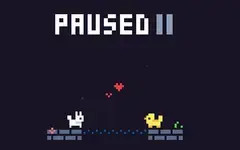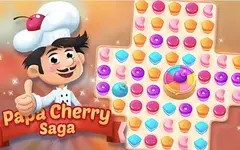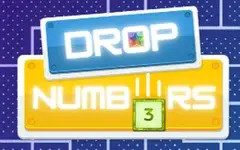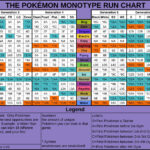Math Lessons Games are an engaging and effective way to learn and reinforce mathematical concepts. At polarservicecenter.net, we understand the importance of making learning fun and accessible, especially when it comes to challenging subjects like mathematics, so we offer you expert guidance and support in navigating the intersection of education and technology. With interactive math games and educational activities, turning math into an enjoyable adventure is possible.
1. What Are Math Lessons Games and Why Are They Important?
Math lessons games are educational activities designed to teach and reinforce mathematical concepts through interactive gameplay. They are important because they can make learning math more engaging, enjoyable, and effective, especially for users of Polar products who want to improve their cognitive skills.
Expanding on the Importance of Math Lessons Games:
- Engagement and Motivation: Math lessons games transform learning from a chore into an exciting activity. According to a study by the University of Chicago, students who use educational games are more motivated to learn and spend more time on task.
- Improved Understanding: Interactive gameplay helps students visualize abstract concepts, leading to a deeper and more intuitive understanding of mathematical principles.
- Immediate Feedback: Games provide instant feedback, allowing learners to correct mistakes and reinforce correct answers in real-time.
- Personalized Learning: Many math games can be customized to match individual skill levels and learning styles, providing a tailored educational experience.
- Development of Problem-Solving Skills: Math games often require strategic thinking and problem-solving, helping to develop critical skills applicable to real-world situations.
- Accessibility: Math lessons games are accessible on various devices, including computers, tablets, and smartphones, making learning possible anytime, anywhere.
2. What Types of Math Lessons Games Are Available?
There are various types of math lessons games available, each designed to teach and reinforce different mathematical skills and concepts. You can find options suited to your particular Polar device usage scenario.
Exploring Different Categories of Math Lessons Games:
- Arithmetic Games: Focus on basic operations such as addition, subtraction, multiplication, and division. These games often involve timed challenges or puzzles that require quick and accurate calculations.
- Algebra Games: Introduce algebraic concepts like variables, equations, and graphing. Players might solve equations to unlock levels or use algebraic thinking to strategize in a game.
- Geometry Games: Cover topics such as shapes, angles, area, and volume. These games may involve constructing shapes, solving spatial puzzles, or navigating virtual environments.
- Logic and Problem-Solving Games: Enhance critical thinking skills through puzzles, riddles, and brain teasers that require mathematical reasoning.
- Fraction and Decimal Games: Focus on understanding and manipulating fractions and decimals through interactive activities and visual aids.
- Money Games: Teach financial literacy skills, such as budgeting, saving, and making change, in a fun and practical way.
- Time Games: Help learners understand how to tell time, measure durations, and manage schedules effectively.
- Math Fact Games: Designed to improve memorization of basic math facts, such as multiplication tables, through repetition and engaging activities.
- Counting Games: Ideal for early learners, these games focus on developing number recognition and counting skills.
- Coordinate Plane Games: Focus on understanding and graphing points on the coordinate plane.
3. How Do Math Lessons Games Improve Cognitive Skills?
Math lessons games enhance cognitive skills by engaging learners in problem-solving, critical thinking, and strategic planning, making them a valuable tool for users of Polar products interested in mental fitness.
Delving into the Cognitive Benefits of Math Lessons Games:
- Problem-Solving: Math games require players to analyze situations, identify patterns, and devise strategies to overcome challenges.
- Critical Thinking: These games often involve evaluating different approaches, making informed decisions, and justifying solutions.
- Strategic Planning: Many math games require players to plan ahead, anticipate outcomes, and adjust their strategies based on feedback.
- Working Memory: Holding mathematical information in mind while manipulating it to solve problems enhances working memory capacity.
- Attention and Focus: Engaging gameplay can improve attention span and the ability to focus on tasks for extended periods.
- Cognitive Flexibility: Adapting to new rules, strategies, and challenges in math games promotes cognitive flexibility.
- Spatial Reasoning: Geometry games and spatial puzzles enhance the ability to visualize and manipulate objects in space.
- Logical Reasoning: Games that involve logical deduction and pattern recognition strengthen logical reasoning skills.
- Decision-Making: Math games often require quick and accurate decision-making under pressure, improving decision-making abilities.
4. What Are The Benefits of Math Lessons Games for Polar Users?
Math lessons games offer numerous benefits for Polar users, including improved cognitive function, enhanced problem-solving skills, and a fun way to stay mentally sharp while tracking fitness goals.
Specific Benefits for Polar Users:
- Enhanced Cognitive Function: Regular engagement with math lessons games can improve overall cognitive function, which is valuable for users who rely on their Polar devices for data analysis and performance tracking.
- Improved Problem-Solving Skills: The problem-solving skills developed through math games can help Polar users better analyze their fitness data and identify strategies for improvement.
- Stress Reduction: Engaging in enjoyable math games can provide a mental break from rigorous training routines, reducing stress and promoting mental well-being.
- Mental Stimulation: Math games offer a fun and stimulating way to keep the mind active, especially during rest days or periods of reduced physical activity.
- Customized Learning: Many math games can be tailored to individual skill levels, allowing Polar users to focus on areas where they need the most improvement.
- Progress Tracking: Some math games provide progress reports and performance metrics, enabling users to track their cognitive development over time.
- Increased Motivation: Math games can make learning more enjoyable, increasing motivation to engage in mental exercises and cognitive training.
- Improved Data Interpretation: Understanding mathematical concepts can help Polar users better interpret the data provided by their devices, leading to more informed training decisions.
- Complementary Training: Mental training through math games can complement physical training, enhancing overall performance and well-being.
5. How Can Polar Users Integrate Math Lessons Games into Their Routine?
Polar users can integrate math lessons games into their routine by setting aside specific times for mental training, using math games as a warm-up or cool-down activity, and incorporating them into rest days.
Practical Strategies for Integration:
- Set Aside Specific Times: Schedule dedicated time slots for math games, just as you would for physical workouts. This helps establish a routine and ensures consistent engagement.
- Use as Warm-Up or Cool-Down: Incorporate math games as a mental warm-up before physical activity to sharpen focus or as a cool-down to relax the mind afterward.
- Incorporate into Rest Days: Utilize rest days to engage in more extensive math game sessions, providing a productive and enjoyable way to recover.
- Use Mobile Apps: Take advantage of mobile math game apps to engage in mental training on the go, during commutes, or while waiting.
- Track Progress: Monitor your performance in math games to track cognitive improvements and stay motivated.
- Join Online Communities: Participate in online forums or groups focused on math games to share experiences, strategies, and challenges.
- Set Goals: Establish specific goals for math game performance, such as reaching a certain level or improving your score, to provide direction and motivation.
- Combine with Physical Activity: Some math games can be combined with light physical activity, such as walking or stretching, to promote both mental and physical well-being.
- Choose Games Wisely: Select math games that align with your interests and skill level to maximize engagement and enjoyment.
6. What Are Some Popular Math Lessons Games for Adults?
Popular math lessons games for adults include Sudoku, KenKen, and various brain-training apps that offer a mix of mathematical and logical challenges, perfect for enhancing cognitive abilities alongside Polar fitness tracking.
Exploring Popular Math Lessons Games:
- Sudoku: A classic number puzzle that requires logical thinking and pattern recognition to fill a 9×9 grid with digits.
- KenKen: A grid-based numerical puzzle that combines elements of Sudoku and arithmetic, challenging players to fill the grid while satisfying specific mathematical operations.
- Brain Training Apps (e.g., Lumosity, Elevate): These apps offer a variety of math-based games designed to improve cognitive skills such as memory, attention, and problem-solving.
- 2048: A tile-based puzzle game where players combine tiles with the same number to reach the 2048 tile, requiring strategic planning and arithmetic skills.
- Math Riddles and Puzzles: Online platforms and books offer a wide range of math riddles and puzzles that challenge logical thinking and problem-solving skills.
- Set: A card game that challenges players to identify sets of three cards that meet specific criteria, enhancing visual perception and pattern recognition.
- Kakuro: A logic puzzle similar to crosswords but with numbers, requiring players to fill in the blanks with digits that sum to specific totals.
- Nonograms: Also known as Picross or Griddlers, these are picture logic puzzles where players use numerical clues to color cells in a grid and reveal a hidden image.
- Math Crosswords: Traditional crossword puzzles with mathematical problems as clues, combining vocabulary and arithmetic skills.
- Chess: A classic strategy game that involves mathematical thinking, planning, and problem-solving.
 House Painter by CoolMathGames
House Painter by CoolMathGames
Alt text: House Painter game, where players paint walls one at a time, available on CoolMathGames.
7. Can Math Lessons Games Help With Real-World Problem-Solving?
Yes, math lessons games can significantly help with real-world problem-solving by improving critical thinking, logical reasoning, and analytical skills, all beneficial for Polar users facing everyday challenges.
How Math Lessons Games Translate to Real-World Skills:
- Critical Thinking: Math games require players to analyze situations, evaluate options, and make informed decisions, which are essential skills for problem-solving in various contexts.
- Logical Reasoning: These games often involve deductive reasoning, pattern recognition, and logical deduction, enhancing the ability to approach problems systematically.
- Analytical Skills: Math games help develop analytical skills by requiring players to break down complex problems into smaller, manageable parts.
- Strategic Planning: Many math games require players to plan ahead, anticipate outcomes, and adjust strategies based on feedback, improving strategic thinking skills.
- Decision-Making: Math games often involve making quick and accurate decisions under pressure, enhancing decision-making abilities in real-world scenarios.
- Quantitative Reasoning: These games improve quantitative reasoning skills, which are valuable for interpreting data, making financial decisions, and understanding statistics.
- Spatial Reasoning: Geometry games and spatial puzzles enhance the ability to visualize and manipulate objects in space, which is useful in fields like engineering, architecture, and design.
- Pattern Recognition: Math games often involve identifying patterns and relationships, which is a valuable skill for data analysis, forecasting, and problem-solving.
- Improved Focus and Attention: Engaging in math games can improve attention span and the ability to focus on tasks, which is essential for effective problem-solving.
8. What Research Says About Math Lessons Games and Learning Outcomes?
Research indicates that math lessons games can positively impact learning outcomes by increasing engagement, improving understanding, and enhancing retention of mathematical concepts.
Key Research Findings:
- Increased Engagement: Studies have shown that math games can increase student engagement and motivation, leading to more time spent on task. A study by MIT found that students were more likely to participate actively in math lessons when games were incorporated.
- Improved Understanding: Interactive gameplay helps students visualize abstract concepts, leading to a deeper and more intuitive understanding of mathematical principles. Research from Stanford University suggests that visual learning aids significantly improve comprehension of complex math concepts.
- Enhanced Retention: Games provide immediate feedback and reinforcement, which can improve retention of mathematical facts and procedures. A study published in the “Journal of Educational Psychology” found that students who learned math through games retained information longer than those who learned through traditional methods.
- Personalized Learning: Many math games can be customized to match individual skill levels and learning styles, providing a tailored educational experience. Research from Carnegie Mellon University highlights the effectiveness of personalized learning approaches in mathematics.
- Development of Problem-Solving Skills: Math games often require strategic thinking and problem-solving, helping to develop critical skills applicable to real-world situations. A study by the University of California, Berkeley, found that students who played math games regularly showed significant improvements in problem-solving abilities.
- Positive Attitudes Toward Math: Games can help reduce math anxiety and foster a more positive attitude toward the subject, making students more willing to engage with mathematical concepts. Research from the University of Michigan indicates that positive attitudes toward math are correlated with higher achievement levels.
9. How Can Parents and Educators Use Math Lessons Games Effectively?
Parents and educators can effectively use math lessons games by selecting age-appropriate games, integrating them into lesson plans, and encouraging a positive learning environment.
Strategies for Effective Use:
- Select Age-Appropriate Games: Choose games that are aligned with the learner’s age, skill level, and learning objectives.
- Integrate into Lesson Plans: Incorporate math games into lesson plans to reinforce concepts and provide a fun and engaging way to practice skills.
- Encourage a Positive Learning Environment: Create a supportive and encouraging environment where learners feel comfortable taking risks and making mistakes.
- Provide Guidance and Support: Offer guidance and support as needed, helping learners understand the rules and strategies of the games.
- Monitor Progress: Track learner progress and performance in math games to identify areas where they may need additional support.
- Use Games for Assessment: Utilize math games as a form of assessment to gauge learner understanding and identify areas for improvement.
- Encourage Collaboration: Promote collaboration and teamwork by having learners play math games together and share strategies.
- Set Goals and Rewards: Establish specific goals for math game performance and offer rewards for achieving those goals to motivate learners.
- Communicate with Parents: Educators should communicate with parents about the math games being used in the classroom and encourage them to use similar games at home.
- Use a Variety of Games: Incorporate a variety of math games to keep learners engaged and prevent boredom.
10. What Are The Future Trends in Math Lessons Games?
Future trends in math lessons games include increased personalization, integration of augmented and virtual reality, and the use of artificial intelligence to create more adaptive and engaging learning experiences.
Emerging Trends:
- Increased Personalization: Math games are becoming increasingly personalized, with adaptive algorithms that adjust the difficulty and content based on individual learner performance.
- Augmented and Virtual Reality Integration: AR and VR technologies are being used to create immersive math games that provide hands-on, interactive learning experiences.
- Artificial Intelligence: AI is being used to create intelligent tutoring systems within math games that provide personalized feedback and guidance.
- Gamification of Math Education: More educational platforms are incorporating game-like elements, such as points, badges, and leaderboards, to increase engagement and motivation.
- Mobile Learning: Math games are increasingly being designed for mobile devices, allowing learners to access educational content anytime, anywhere.
- Data Analytics: Data analytics are being used to track learner progress and identify areas where they may need additional support.
- Collaborative Learning: Math games are incorporating collaborative features that allow learners to work together and learn from each other.
- Integration with Curriculum: Math games are being designed to align more closely with school curricula, ensuring that they reinforce key concepts and skills.
- Focus on Real-World Applications: Math games are increasingly focusing on real-world applications of mathematics, helping learners see the relevance of what they are learning.
- Accessibility: Math games are being designed to be more accessible to learners with disabilities, ensuring that everyone can benefit from these educational tools.
 Paused game on CoolMathGames
Paused game on CoolMathGames
Alt text: Paused game, where players solve puzzles as a bunny and bird, available on CoolMathGames.
11. What Math Resources Does polarservicecenter.net Offer to Enhance Learning?
While polarservicecenter.net primarily focuses on providing support and services for Polar products, users can leverage math lessons games to enhance their cognitive skills and complement their fitness routines, using the problem-solving skills they gain to troubleshoot technical issues with their Polar devices.
How Polar Users Can Benefit:
- Cognitive Skill Development: Engage in math lessons games to improve problem-solving, critical thinking, and analytical skills, which are valuable for interpreting fitness data and optimizing training strategies.
- Mental Stimulation: Use math games as a form of mental exercise to stay sharp and focused, especially during rest days or periods of reduced physical activity.
- Stress Reduction: Enjoyable math games can provide a mental break from rigorous training routines, reducing stress and promoting mental well-being.
- Data Analysis: Understanding mathematical concepts can help you better interpret the data provided by your Polar devices, leading to more informed training decisions.
- Troubleshooting Skills: The problem-solving skills developed through math games can help you troubleshoot technical issues with your Polar devices more effectively.
For specific guidance on using your Polar device or troubleshooting technical issues, visit polarservicecenter.net for detailed instructions and support. Our team is dedicated to providing you with the resources you need to maximize the benefits of your Polar product.
12. What Are Common Misconceptions About Math Lessons Games?
Common misconceptions about math lessons games include the belief that they are only for children, that they are not educational, and that they are a waste of time.
Addressing Misconceptions:
- Misconception: Math Games Are Only for Children: Math games are not just for children; they can be beneficial for adults as well. Many math games are designed to challenge and stimulate the minds of people of all ages.
- Misconception: Math Games Are Not Educational: Math games are educational and can be a valuable tool for learning and reinforcing mathematical concepts. They can improve problem-solving skills, critical thinking, and analytical abilities.
- Misconception: Math Games Are a Waste of Time: Math games are not a waste of time; they can be a productive and enjoyable way to improve cognitive skills and enhance learning.
- Misconception: Math Games Are Too Easy: Many math games are designed to be challenging and can require significant effort and skill to master.
- Misconception: Math Games Are Not Relevant to Real-World Situations: Math games can help develop skills that are applicable to real-world situations, such as problem-solving, critical thinking, and decision-making.
- Misconception: Math Games Are Boring: Math games can be fun and engaging, especially when they are designed to be interactive and visually appealing.
- Misconception: Math Games Are Only for People Who Are Good at Math: Math games can be beneficial for people of all skill levels, including those who struggle with math. They can provide a supportive and encouraging environment for learning and improving mathematical skills.
- Misconception: Math Games Are Not Effective for Learning Complex Concepts: Math games can be effective for learning complex concepts by breaking them down into smaller, more manageable parts and providing opportunities for practice and reinforcement.
- Misconception: Math Games Are a Replacement for Traditional Math Education: Math games are not a replacement for traditional math education; they are a supplement that can enhance learning and make math more enjoyable.
13. Are Math Lessons Games Suitable for All Learning Styles?
Math lessons games can be adapted to suit various learning styles, including visual, auditory, and kinesthetic learners, making them a versatile educational tool for users of Polar products.
Adapting Math Games to Different Learning Styles:
- Visual Learners: Math games that incorporate visual aids, such as diagrams, charts, and animations, can be particularly effective for visual learners. Examples include geometry games, graphing games, and visual puzzles.
- Auditory Learners: Math games that involve verbal instructions, audio feedback, and musical elements can be beneficial for auditory learners. Examples include math songs, rhythm-based games, and audio-guided puzzles.
- Kinesthetic Learners: Math games that involve hands-on activities, movement, and tactile elements can be helpful for kinesthetic learners. Examples include building games, interactive simulations, and physical puzzles.
- Logical Learners: Math games that require logical thinking, problem-solving, and analytical skills can be appealing to logical learners. Examples include Sudoku, KenKen, and logic puzzles.
- Social Learners: Math games that involve collaboration, teamwork, and communication can be beneficial for social learners. Examples include multiplayer math games, group problem-solving activities, and online math communities.
- Solitary Learners: Math games that can be played independently and at one’s own pace can be suitable for solitary learners. Examples include single-player puzzle games, math riddles, and self-paced online courses.
- Adaptable Games: Many math games can be adapted to suit different learning styles by providing options for visual, auditory, and kinesthetic input.
14. How Can I Find High-Quality Math Lessons Games?
You can find high-quality math lessons games by looking for recommendations from educators, checking reviews and ratings, and exploring reputable educational websites and apps.
Strategies for Finding Quality Math Games:
- Seek Recommendations from Educators: Ask teachers, tutors, and educational experts for recommendations on high-quality math games.
- Check Reviews and Ratings: Look for reviews and ratings from other users to get an idea of the game’s quality and effectiveness.
- Explore Reputable Educational Websites: Visit reputable educational websites and apps that offer a curated selection of math games.
- Look for Games Aligned with Curriculum: Choose games that are aligned with school curricula and learning objectives.
- Consider the Game’s Design: Look for games with clear instructions, engaging graphics, and intuitive gameplay.
- Check for Educational Value: Ensure that the game is designed to teach and reinforce mathematical concepts and skills.
- Try Free Versions or Demos: Before purchasing a math game, try a free version or demo to see if it is a good fit for your needs.
- Read User Feedback: Pay attention to user feedback and comments to get an idea of the game’s strengths and weaknesses.
- Check for Awards and Recognition: Look for games that have received awards or recognition from educational organizations.
- Consider the Source: Choose games from reputable developers and publishers with a track record of producing high-quality educational content.
 Papa Cherry Saga on CoolMathGames
Papa Cherry Saga on CoolMathGames
Alt text: Papa Cherry Saga game, where players collect sweets, available on CoolMathGames.
15. How Can Math Lessons Games Be Used in Homeschooling?
Math lessons games can be a valuable resource in homeschooling by providing engaging and interactive ways to teach and reinforce mathematical concepts, making learning more enjoyable and effective.
Strategies for Using Math Games in Homeschooling:
- Supplement Curriculum: Use math games to supplement the core curriculum and provide additional practice and reinforcement.
- Make Learning Fun: Incorporate math games into lesson plans to make learning more enjoyable and engaging for students.
- Personalize Learning: Choose math games that are tailored to the student’s individual skill level and learning style.
- Use Games for Assessment: Utilize math games as a form of assessment to gauge student understanding and identify areas for improvement.
- Create a Game-Based Learning Environment: Transform the homeschooling environment into a game-based learning environment by incorporating math games into daily routines and activities.
- Encourage Collaboration: Promote collaboration and teamwork by having students play math games together and share strategies.
- Set Goals and Rewards: Establish specific goals for math game performance and offer rewards for achieving those goals to motivate students.
- Use a Variety of Games: Incorporate a variety of math games to keep students engaged and prevent boredom.
- Track Progress: Monitor student progress and performance in math games to identify areas where they may need additional support.
- Integrate Real-World Applications: Choose math games that focus on real-world applications of mathematics to help students see the relevance of what they are learning.
By incorporating math lessons games into your routine, Polar users can enhance their cognitive skills, improve problem-solving abilities, and enjoy a fun way to stay mentally sharp. While polarservicecenter.net focuses on providing excellent service and support for your Polar products, we encourage you to explore the world of math lessons games to complement your fitness journey.
FAQ About Math Lessons Games
1. Are math lessons games effective for all ages?
Yes, math lessons games can be effective for all ages, from young children learning basic arithmetic to adults looking to sharpen their cognitive skills. The key is to choose games that are appropriate for the individual’s skill level and learning objectives.
2. Can math lessons games replace traditional math education?
No, math lessons games should not replace traditional math education. Instead, they should be used as a supplement to enhance learning and make math more enjoyable and engaging.
3. What are some of the cognitive benefits of playing math lessons games?
Playing math lessons games can improve problem-solving skills, critical thinking abilities, strategic planning, working memory, attention span, and cognitive flexibility.
4. How can I find math lessons games that are aligned with school curricula?
Look for games that are recommended by educators or that are designed to align with specific learning standards and curricula. Many educational websites and apps offer games that are specifically designed to reinforce key concepts and skills taught in schools.
5. Are math lessons games only beneficial for people who are good at math?
No, math lessons games can be beneficial for people of all skill levels, including those who struggle with math. They can provide a supportive and encouraging environment for learning and improving mathematical skills.
6. Can math lessons games help reduce math anxiety?
Yes, math lessons games can help reduce math anxiety by making learning more fun and engaging. They can also help build confidence by providing opportunities for success and positive feedback.
7. How can I incorporate math lessons games into my daily routine?
You can incorporate math lessons games into your daily routine by setting aside specific times for playing them, using them as a warm-up or cool-down activity, or incorporating them into rest days. You can also take advantage of mobile apps to play math games on the go.
8. What are some popular math lessons games for adults?
Popular math lessons games for adults include Sudoku, KenKen, brain-training apps like Lumosity and Elevate, and strategy games like chess.
9. How can I tell if a math lessons game is high quality?
Look for games that have clear instructions, engaging graphics, and intuitive gameplay. Also, check for reviews and ratings from other users and consider the source of the game.
10. Can math lessons games help with real-world problem-solving?
Yes, math lessons games can help with real-world problem-solving by improving critical thinking, logical reasoning, and analytical skills.
 Drop Numbers on CoolMathGames
Drop Numbers on CoolMathGames
Alt text: Drop Numbers game, where players combine numbers without filling the grid, available on CoolMathGames.
For further assistance with your Polar products, remember to visit polarservicecenter.net, where you’ll find a wealth of resources and support to help you make the most of your device. Our commitment is to ensure you have the tools and information you need to achieve your fitness and wellness goals. Whether you’re seeking guidance on troubleshooting issues, understanding warranty information, or locating authorized service centers in the USA, we’re here to help. Contact us today to experience the polarservicecenter.net difference.
Address: 2902 Bluff St, Boulder, CO 80301, United States
Phone: +1 (303) 492-7080
Website: polarservicecenter.net
